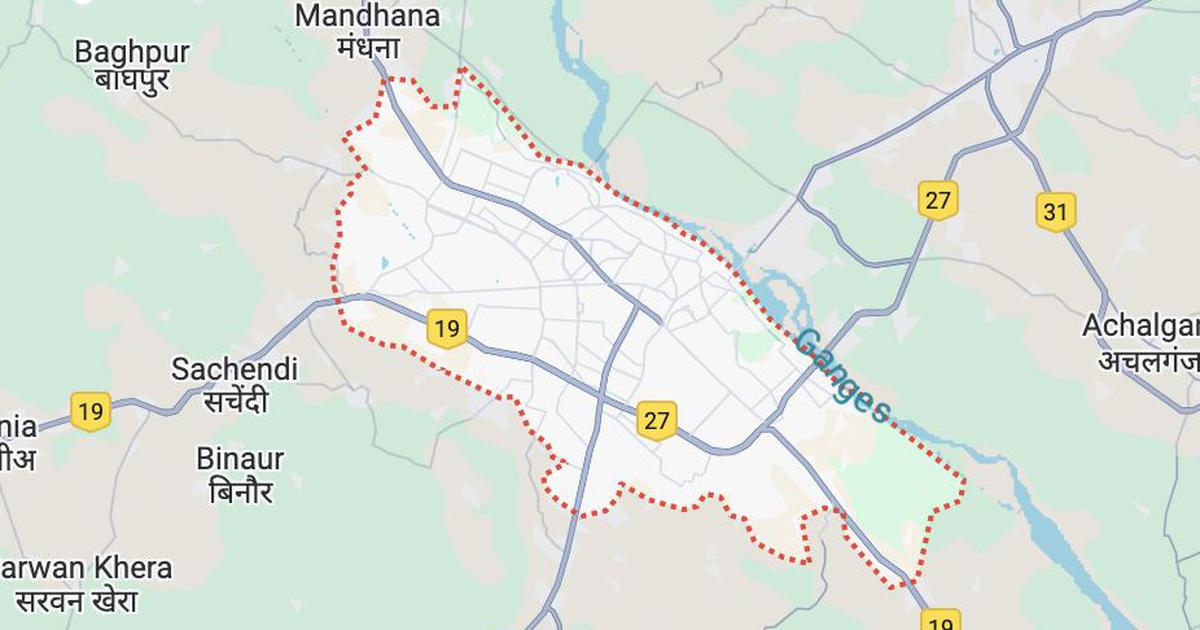
On August 22, at least 391 people in a Telegram group “voted” in a single-question anonymous poll: should they start a social media campaign against a news outlet for employing a “Hindu hater”?
Yes, 96 percent of the voters decreed.
And so it began.
Earlier that day, Tanveer Ali, a journalist with TV9 Bharatvarsh news channel, had put up a social media post: “Behen ki gaali dene wale log aaj tyohar mana rahe hai”.
Roughly translated, it means, “Those who abuse sisters are celebrating a festival today.” For context, it was the day of Raksha Bandhan, a festival that traditionally celebrates the brother-sister bond.
The Hindu IT Cell soon pounced on Tanveer’s tweet, tagging TV9 Bharatvarsh about their staffer, who they alleged had “maligned the pious festival of Raksha Bandhan which is celebrated by Hindus around the globe”.
The Hindu IT Cell, started last year, is a “group of concerned Hindus” that aims to “protect Dharma through legal means”. They demanded that TV9 take “strict action” against Tanveer, or else “be prepared for a social media boycott”.
On the IT Cell’s Telegram channel, which this correspondent was able to get into, the members were told to amplify the tweet so as to “mount pressure on the media house”.
They didn’t need any coaxing. They had already begun running hashtags like #Hinduphobic_TanveerAli, with the demand that TV9 fire their staffer. “Do you employ these kinds of terrorists?” one troll asked TV9.
On August 23, the IT Cell issued a “final warning” to the media house via Twitter to take “appropriate action” against Tanveer. Two days later, they sent a legal notice to the journalist and TV9.
The same evening, the media house made its social media policy more stringent. In an email to all staffers, the company’s human resources head laid down that no employee could henceforth make a post without the approval of a “competent authority.”
Then, in a response to Newslaundry’s questions about the new policy, TV9 group editor BV Rao hinted at Tanveer’s tweet, without naming him, as an example of “inappropriate” posts which had led to the “necessary correction in the guidelines”.

Communal colour
The notice claimed that Tanveer “cleverly and consciously” timed the post on Raksha Bandhan with the “evil intention” of insulting Hindu women and Hindu religion in order to “provoke “breach of peace”. The IT Cell tied the remark to the journalist’s religious identity: he was a Muslim targeting a Hindu festival, they said, and demanded an “unconditional apology” within seven days.
The notice stated that the Hindu IT Cell did not wish to take any legal action against TV9 if they gave detailed information about Tanveer within the stipulated period. If not, they would be taken to court.
In the wake of the online outrage against him, Tanveer tweeted on August 24 that his words had been distorted; he only meant to show respect for women in India. Despite multiple attempts to reach, the journalist was unavailable for comment.
Tanveer noted that his post was copied from one Deepak Kumar’s Facebook, but the IT Cell picked his post alone to outrage to give it communal colour.
He would never hurt anybody’s religious sentiments, Tanveer said, and apologised to “any brothers or sisters” his post may have hurt.
The apology didn’t suffice for the Hindu IT Cell and they sent Tanveer the legal notice. Since neither Tanveer nor TV9 have replied to the notice, the IT cell plan to take the matter to court.
Because, according to the group’s secretary and spokesperson Sahil Khosla, the apology was more like a justification. “We don’t want any justification, but an unconditional apology in the public domain. His justification is as if he didn’t do anything wrong and we are attacking him unnecessarily. His intention was clearly to hurt Hindu religious sentiments,” Khosla told Newslaundry.
He alleged it was Tanveer rather than the Hindu IT Cell who had brought in the communal angle when he “commented on the Dharmic day of Hindus” and “made statements against” their religion.
But didn’t the Hindu IT Cell’s notice underline Tanveer’s Muslim identity?
“We specifically mentioned this because as a Muslim you don’t celebrate rakhis, we Hindus do. You have nothing to do with this, yet you are targeting the Hindu community. We won’t tolerate it,” he said, asking Newslaundry to note that the group did not endorse violence.
Khosla added, “We go online so people have a chance to clarify. But people like Ali try to justify even while apologising, so we take action. People are developing a habit of using bad words against Hindus. We will not tolerate this.”
Trolling history
The Hindu IT Cell, which has 3,500 followers on Telegram and about a lakh on Twitter, has so far lodged 700-800 complaints, according to Khosla, besides running social media campaigns and threatening people with legal notices.
In June 2020, the IT Cell took offense to an Instagram post by ScoopWoop which “showed PoK and Chinese occupied Ladakh as parts integrated with Pakistan and China, respectively”. When ScoopWoop didn’t comply with their demand to take down the post despite multiple “requests”, the group’s members filed a cyber complaint.
Such organised trolling can lead to employers making hasty decisions to save face and escape the wrath of such groups.
In July 2020, for example, the Hindu IT Cell targeted Srishti Jaswal, then a Hindustan Times reporter, who they alleged was a “Hindu hater” for posting an allegedly “derogatory” tweet about the god Krishna. Srishti was forced to apologise, but was fired from her job nonetheless, had multiple police complaints and FIRs filed against her, was subjected to vicious trolling, sent rape and death threats.
“I was an easy target for them and they celebrated the consequences I faced like it was a milestone that they achieved,” Srishti told Newslaundry. “They treat you like a trophy, that this is what they have done for Hindutva. They do not realise how this has the potential of changing people’s lives. It’s a mission for them.”
A year on, Srishti, now an independent journalist, is still reeling from what happened. “I don’t speak on social media anymore. I used to post my opinions and be vocal but now I don’t have the strength,” she said. “I think twice before posting happy birthday or congratulatory messages even.”
The same month, the Hindu IT Cell filed multiple police complaints against Suprakash Majumdar, a freelance journalist, over his comments on Ram and Hanuman. Trolls also targeted his girlfriend, herself an independent journalist, allegedly threatening her with rape and sharing her pictures on social media.
Suprakash, a Dalit, was subjected to castiest trolling and slapped with seven cyber complaints as well. “I did not do a story for the next three months because I didn’t want to have my name dragged through Twitter again,” he said. “I thought that no matter what I did, they would be after me.”
They have also gone after journalist Prashant Kanojia, activist Sharjeel Usmani, comedians Agrima Joshua and Radhika Vaz.
This story first appeared on newslaundry.com






